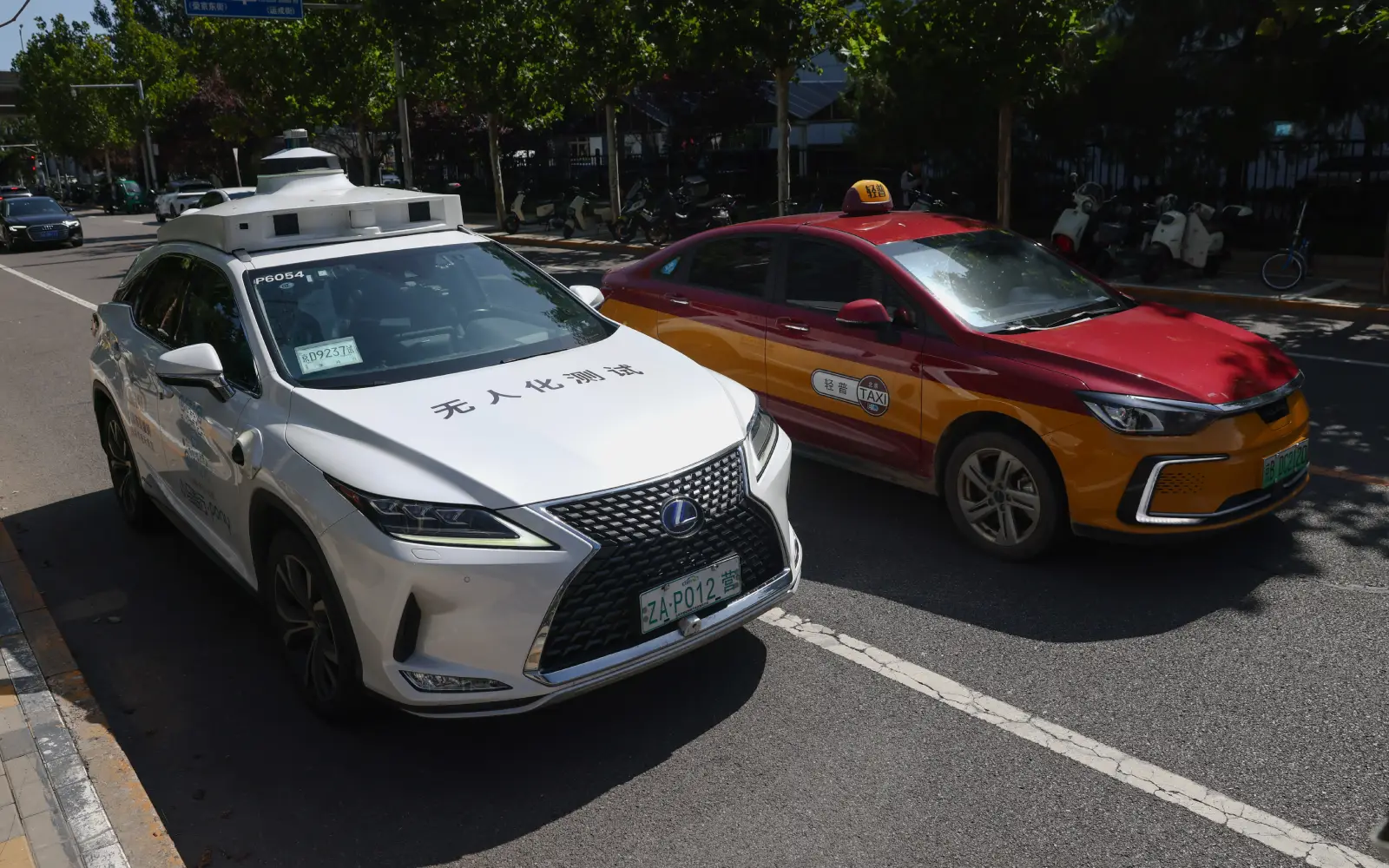China’s robotaxi firms sink on Hong Kong debut

Shares in Chinese self-driving start-ups Pony.AI and WeRide tumbled on their Hong Kong debuts Thursday, after raising more than US$1.1 billion, with experts warning China is not yet ready for a mass rollout of robotaxis.
The Chinese firms, which listed in New York last year, are looking to expand their foothold abroad with rivals including tech giant Baidu.
But their stocks fell more than 10% each as they began trading on Hong Kong’s stock exchange.
Pony.AI, which priced its shares at HK$139 each to raise HK$6.71 billion (US$860 million), plunged 14.4% to HK$119. WeRide set its price at HKD$27.10 as it raised HK$2.39 billion but tanked 13.9% to HK$23.30.
Both companies plan to use the proceeds from the listings to develop autonomous driving technology and solutions.
The listings were the latest in Hong Kong, which is the world’s biggest IPO market this year, and comes as Beijing looks to champion the autonomous driving sector.
“This is not only a milestone for both companies, but also a significant landmark of accelerated development for the whole self-driving industry,” Pony.AI’s CEO James Peng said at Thursday’s listing ceremony.
According to its prospectus, Pony.AI has recorded continuous losses since 2022, with Peng telling Chinese media that it expected to break even in 2028.
Tony Han, founder and CEO of WeRide, said: “Let us join forces to contribute to the advancement of autonomous driving in China, and even the world.”
China has rapidly promoted driverless taxis and hopes to further reduce transportation costs by intergrating artificial intelligence.
The country’s robotaxi services are expected to reach US$70 million by 2025, but will see exponential growth to US$39.4 billion by 2030 and US$183.0 billion by 2035, according to consultancy Frost & Sullivan.
It is projected that robotaxis will make up a substantial proportion of the overall fleet of shared passenger vehicles operating in China by 2035.
This would also establish China as the largest robotaxi services sector, capturing more than half of the global market share.
Listed ride-hailing companies Didi and Caocao have both included autonomous driving services in their future growth plans.
However, analysts have expressed concerns about the potential safety issues of the driverless technology.
Tom Nunlist, a tech policy analyst at Trivium China, said the major challenge for the industry in China is how regulations are currently changing.
Chinese officials from the Ministry of Industry and Information Technology said the country is planning to accelerate standards development for driver assistance systems and autonomous driving in the following years.
Over-marketing practices and accidents caused by misuse are forcing the officials to “really put tighter bounds on how these systems operate and how they can be deployed”, Nunlist told AFP.

